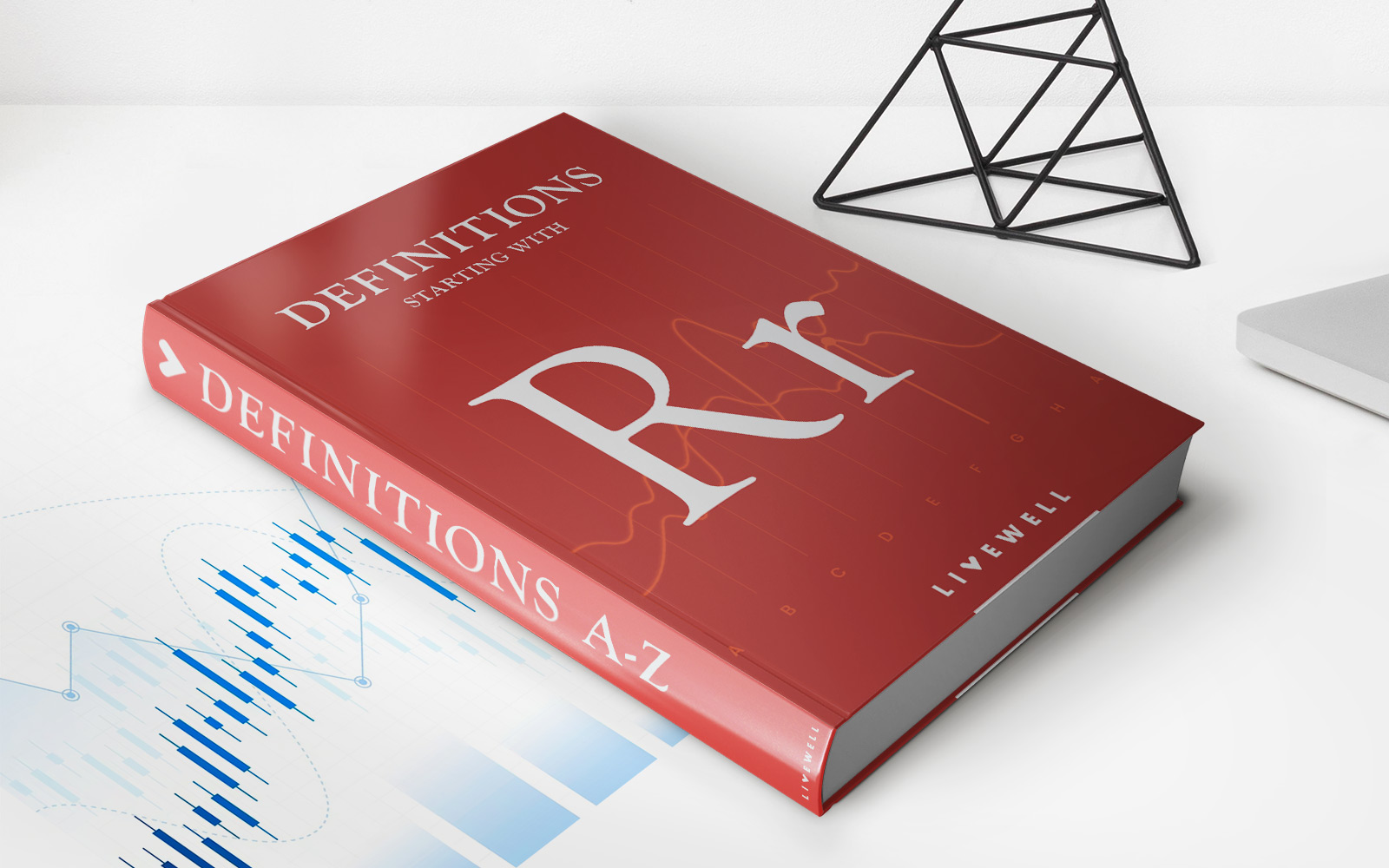

Finance
What Is Twisting In Insurance Terms?
Modified: March 1, 2024
Learn about twisting in insurance terms and how it relates to finance. Understand the risks and consequences involved.
(Many of the links in this article redirect to a specific reviewed product. Your purchase of these products through affiliate links helps to generate commission for LiveWell, at no extra cost. Learn more)
Table of Contents
Introduction
When it comes to insurance, it’s important to have a clear understanding of the various terms and practices in the industry. One term that often raises eyebrows is “twisting.” But what exactly does this term mean in the context of insurance?
Twisting in insurance refers to a deceptive practice where an insurance agent or broker persuades a policyholder to cancel or replace an existing insurance policy with a new one. The intention behind twisting is usually to generate commissions or financial gains for the agent, while leaving the policyholder at a potential disadvantage.
This article aims to shed light on the concept of twisting in insurance terms, highlighting its implications, examples, consequences, regulatory measures, and ways to avoid falling victim to this practice.
Understanding twisting is crucial for both policyholders and insurance professionals. For consumers, it helps protect their financial interests and empowers them to make informed decisions. For insurance professionals, it reinforces ethical practices and promotes trust in the industry.
So, let’s dive deeper into the world of twisting in insurance and unravel its complexities to ensure you have the knowledge you need to navigate the insurance landscape confidently.
Definition of Twisting in Insurance Terms
Twisting, in the context of insurance, refers to a deceptive practice where an insurance agent or broker persuades a policyholder to cancel or replace their existing insurance policy with a new one. The agent or broker may use misleading information or tactics to convince the policyholder that the new policy offers better terms, benefits, or pricing.
This practice is considered unethical because it prioritizes the financial interests of the agent or broker over the needs and best interests of the policyholder. Twisting often occurs when the agent or broker stands to earn higher commissions or financial incentives from selling a new policy, regardless of whether it provides any real benefits or savings for the policyholder.
Twisting can occur in various forms, such as encouraging policyholders to switch policies within the same company, moving policies to a different company, or even convincing policyholders to surrender their existing policies and purchase entirely new ones. In some instances, the new policy may have less favorable terms, higher premiums, or reduced coverage compared to the original policy.
It’s important to note that twisting differs from legitimate practices such as policy recommendations or upgrades that genuinely benefit the policyholder. Twisting involves deceptive tactics where the policyholder is misled or provided with inaccurate information to induce them into making a change to their policy that may not be in their best interest.
To protect policyholders and maintain the integrity of the insurance industry, various laws, regulations, and ethical standards have been put in place to deter twisting and hold agents and brokers accountable for their actions.
Now that we have a clear understanding of what twisting entails, let’s explore some examples to illustrate how this practice can occur in real-life scenarios.
Examples of Twisting
Twisting in insurance can take different forms, and understanding these examples can help policyholders recognize potential instances of this unethical practice. Here are a few common examples of twisting:
- An insurance agent approaches a policyholder and convinces them that their current policy is inadequate or overpriced. The agent then offers to replace the policy with a new one, promising better coverage and lower premiums. However, the new policy may have limited coverage or higher deductibles, and the policyholder may end up paying more in the long run.
- A policyholder receives a call from an insurance agent claiming to represent their current insurance company. The agent tells the policyholder that their policy is expiring soon and encourages them to switch to a new policy with the same company. Unbeknownst to the policyholder, the agent is actually from a different insurance company and is only trying to make a sale for their own benefit.
- An insurance agent offers a policyholder a free financial review. During the review, the agent points out flaws in the policyholder’s existing coverage and recommends canceling the current policy in favor of a new one, emphasizing potential savings and enhanced benefits. However, the agent may not disclose that they receive significant commissions from selling the new policy, and the policyholder may end up with a policy that doesn’t meet their needs or offers minimal benefits.
- A policyholder receives unsolicited mail or a phone call offering a policy upgrade with a different insurance company. The salesperson highlights the benefits of the new policy, such as additional coverage or lower premiums. However, the policyholder may not be aware that the upgrade involves replacing their current policy, potentially causing them to lose out on benefits or pay higher premiums.
These examples illustrate how twisting can occur in various ways. It’s important for policyholders to be vigilant and cautious when approached by insurance agents offering policy changes. Consultation with a trusted insurance professional or reviewing policy details directly with the insurance company can help verify the legitimacy of proposed changes and protect against falling victim to twisting.
Now, let’s explore the potential consequences that policyholders and insurance professionals may face in relation to twisting.
Consequences of Twisting
The consequences of twisting in insurance can have significant impacts on both policyholders and insurance professionals. Understanding these consequences is crucial in highlighting the importance of ethical practices and the need for regulatory measures. Here are some potential consequences associated with twisting:
- Financial Loss for Policyholders: One of the primary consequences of twisting is that policyholders can end up with inadequate coverage or policies that don’t meet their needs. They may also incur higher premiums, deductibles, or fees as a result of the misleading information provided by the agent. In the long run, this can lead to financial hardship and unnecessary expenses.
- Lack of Trust and Confidence in the Insurance Industry: Twisting erodes trust and confidence in the insurance industry. When policyholders experience and become aware of deceptive practices, it diminishes their trust in insurance agents, brokers, and even insurance companies as a whole. The reputation of the entire industry suffers, making it challenging for honest professionals to build strong relationships with clients.
- Potential Legal and Regulatory Consequences: Twisting can have legal and regulatory repercussions for insurance professionals who engage in this unethical behavior. Regulatory bodies and industry organizations have strict guidelines and standards in place to ensure ethical practices. Agents found guilty of twisting may face fines, license suspension, or even revocation of their license, depending on the severity of the offense and jurisdiction.
- Loss of Professional Reputation: Engaging in twisting can damage the professional reputation of insurance agents or brokers. Word travels fast, and negative experiences shared by policyholders can tarnish an agent’s reputation within the industry. Being associated with unethical practices can hinder career growth and opportunities for those involved in twisting.
- Diminished Customer Satisfaction: Policyholders who fall victim to twisting are often left feeling deceived and dissatisfied with their insurance experience. This can lead to a loss of customer loyalty and a negative impact on customer retention rates for insurance companies. By prioritizing short-term financial gains over long-term customer satisfaction, twisting jeopardizes the relationships between insurers and policyholders.
These consequences underscore the importance of ethical behavior and the need for stringent regulations to prevent twisting in the insurance industry. In the next section, we will explore the laws and regulations that aim to protect policyholders and deter twisting practices.
Laws and Regulations on Twisting
To protect the interests of policyholders and maintain the integrity of the insurance industry, there are laws and regulations in place to deter twisting practices. These laws vary by jurisdiction, but they generally serve the purpose of promoting transparency, honesty, and ethical behavior among insurance professionals. Here are some common laws and regulations related to twisting:
- Insurance Licensing Requirements: Insurance agents and brokers are typically required to obtain a license to practice in their respective jurisdictions. These licensing requirements often include passing exams, meeting educational criteria, and adhering to a code of conduct. Regulatory bodies monitor license holders and have the authority to discipline or revoke licenses for engaging in unethical practices like twisting.
- Disclosure Requirements: Insurance professionals are required to provide policyholders with accurate and complete information about insurance policies, including benefits, coverage limitations, exclusions, and costs. They must also disclose their financial interests, such as commissions or incentives they receive from selling insurance policies. This ensures that policyholders have the information they need to make informed decisions.
- Anti-Twisting Laws: Many jurisdictions have specific statutes or regulations in place that explicitly prohibit twisting. These laws outline the actions and behaviors that constitute twisting, and they impose penalties for violations. Examples of such penalties can include fines, license suspension, or even criminal charges in extreme cases.
- Institutional Ethical Guidelines: Insurance companies and industry organizations often have their own codes of ethics and guidelines that establish expected standards of conduct for their employees and agents. These guidelines emphasize the importance of acting in the best interests of policyholders, maintaining transparency, and avoiding practices like twisting. Violations of these guidelines can result in disciplinary actions by the organization.
- Consumer Protection Measures: Regulatory bodies and consumer protection agencies play an important role in safeguarding policyholders’ interests. They provide educational resources and channels for policyholders to report fraudulent or deceptive practices. These agencies investigate complaints, pursue enforcement actions against violators, and work to raise awareness about twisting and other unethical practices in the insurance industry.
It’s essential for insurance professionals to familiarize themselves with these laws and regulations and to operate within their boundaries. Likewise, policyholders should be aware of their rights and responsibilities when dealing with insurance professionals to ensure they are not taken advantage of through twisting practices.
In the next section, we will explore ways in which policyholders can safeguard themselves against twisting.
How to Avoid Twisting
As a policyholder, it’s important to be proactive and take steps to protect yourself from falling victim to twisting in the insurance industry. Here are some measures you can take to avoid twisting:
- Do Your Research: Before making any changes to your insurance policy, thoroughly research the coverage, terms, and conditions of your current policy. Understand what it offers and assess whether it still meets your needs. This will give you a clear benchmark to compare any proposed changes against.
- Consult with Multiple Professionals: Seek advice from multiple insurance professionals, agents, or brokers when considering changes to your insurance policy. By getting different perspectives and opinions, you can make a more informed decision and identify any potential inconsistencies or misrepresentations in the information provided.
- Ask Questions: Don’t hesitate to ask questions about any proposed changes to your insurance policy. Request detailed explanations about the coverage, benefits, limitations, and premiums of the new policy. A reputable insurance professional will be transparent and forthcoming with information, helping you make an informed decision.
- Review Documents Carefully: When presented with new policy documents, take the time to review them thoroughly. Pay attention to the fine print and ensure that the terms and coverage align with what was discussed and promised. If there are any discrepancies or uncertainties, seek clarification before proceeding.
- Be Wary of Unsolicited Offers: Be cautious when approached by insurance agents offering unsolicited policy changes or upgrades. Verify the legitimacy of the agent and the offer before proceeding. Don’t provide any personal or financial information unless you are confident in the credibility of the professional.
- Report Suspected Twisting: If you suspect that you have been a victim of twisting, report the incident to your local regulatory body or consumer protection agency. Provide them with all relevant details and any supporting documentation. Reporting such incidents helps protect others from falling prey to unethical practices.
By being proactive, asking questions, and seeking multiple opinions, you can reduce the risk of becoming a victim of twisting. Remember that you have the right to make informed decisions and protect your financial interests when it comes to insurance policies.
Now let’s summarize what we have discussed so far.
Conclusion
Twisting in insurance is a deceptive practice where an agent or broker persuades a policyholder to cancel or replace their existing policy with a new one, often for their own financial gain. This unethical behavior can lead to financial losses for policyholders, a lack of trust in the insurance industry, legal consequences for professionals, and diminished customer satisfaction.
To prevent twisting, it is crucial for policyholders to do their research, consult with multiple professionals, ask questions, review policy documents carefully, and be cautious of unsolicited offers. Familiarizing oneself with the laws and regulations related to twisting can also provide protection and recourse in case of fraudulent practices.
Insurance professionals have a responsibility to act in the best interests of policyholders, maintain transparency, and adhere to ethical guidelines. By following these principles, they can build trust and credibility within the industry, ensuring long-term customer satisfaction and success.
In conclusion, policyholders must remain vigilant and conscious of the potential for twisting in the insurance industry. By staying informed, asking the right questions, and seeking multiple opinions, they can make informed decisions and protect their financial interests. On the other hand, insurance professionals must prioritize ethical practices and comply with laws and regulations to maintain the trust of their clients and the integrity of the industry as a whole.
Remember, the key to navigating the insurance landscape successfully is knowledge, awareness, and a commitment to ethical conduct.














